Youth Education & Life Skills
Dynamics of Family Life in Muslim Families with Migrant Background: Mapping Parenting Support Needs and Available Resources
On the 30th of January 2025 a range of researchers from different universities, disciplines and levels, alongside founders of Islamic educational and pedagogical institutes, mosque representatives, and students joined the research symposium “Dynamics of Family Life in Muslim Families with Migrant Background: Mapping Parenting Support Needs and Available Resources”. The organizers and symposium hosts Dr. Semiha Bekir (Assistant Professor in Development and Education of Youth in Diverse Societies), and Ouissam Abattouy (PhD candidate) studying the parent-adolescent relationships in migrant-and non-migrant families, focused on bringing together practitioners such as pedagogues, family counsellors, social workers, and academic experts whose work centers on the family life of Muslims with a migrant background in the Netherlands. The symposium was organized under the umbrella of the Islamic Pedagogies and Education Research Network (ISPED) and financed by Utrecht University’s Youth Education & Life Skills community of Dynamics of Youth.
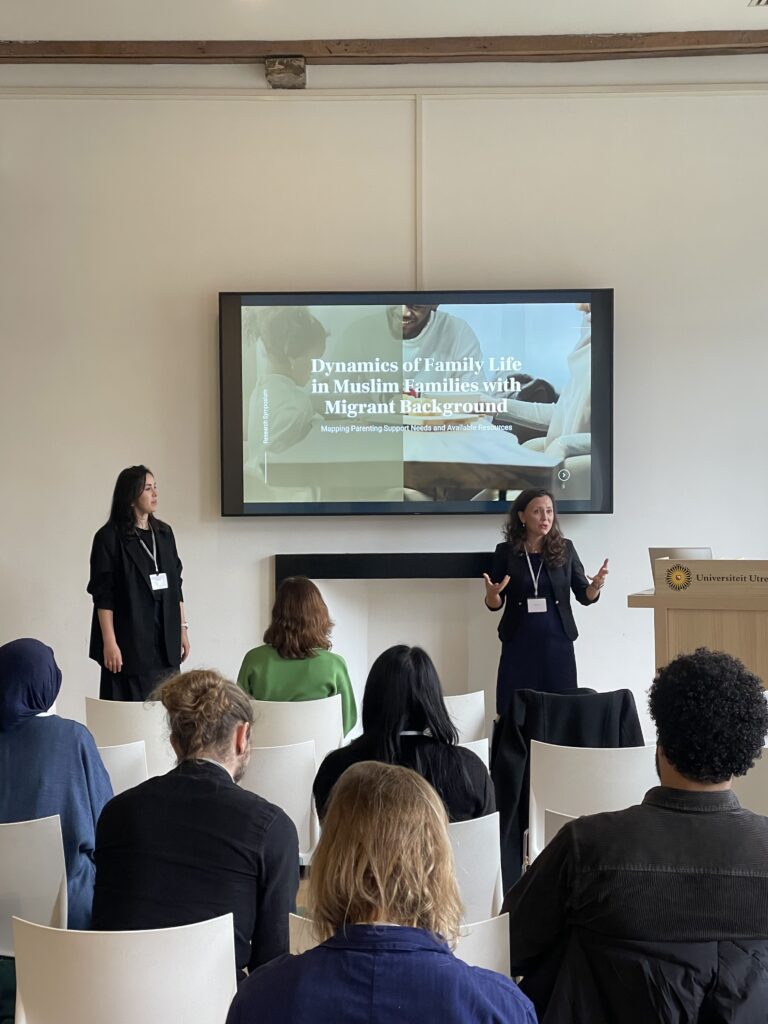
The underlying goal of the symposium was to create better connections between academia and practice. The different keynotes and the interactive research idea mapping sessions discussed the challenges faced by Muslim families in Western countries, like the Netherlands and UK, while addressed the necessity to get a better understanding of the role of religion in childrearing in Muslim families with a migrant background. It also highlighted the need to culturally tailor the parenting support offered to the families by pedagogic institutions that are already existing and those that are being newly developed. It was acknowledged by the audience and the speakers alike that Muslim families in Western countries face multifaceted challenges that can often be different from the parenting dilemmas of families belonging to a cultural majority. Such challenge include, for instance, the intergenerational transmission of cultural and religious norms and values. Another challenge include the mismatch between the demand for and supply of culturally relevant education and parenting support, as well as the broader challenge related to belonging, identity, and discrimination. Research addressing the specific support needs of Muslim families with a migrant background remains scarce, limiting the potential for evidence-based and context-informed parenting and family support programs.
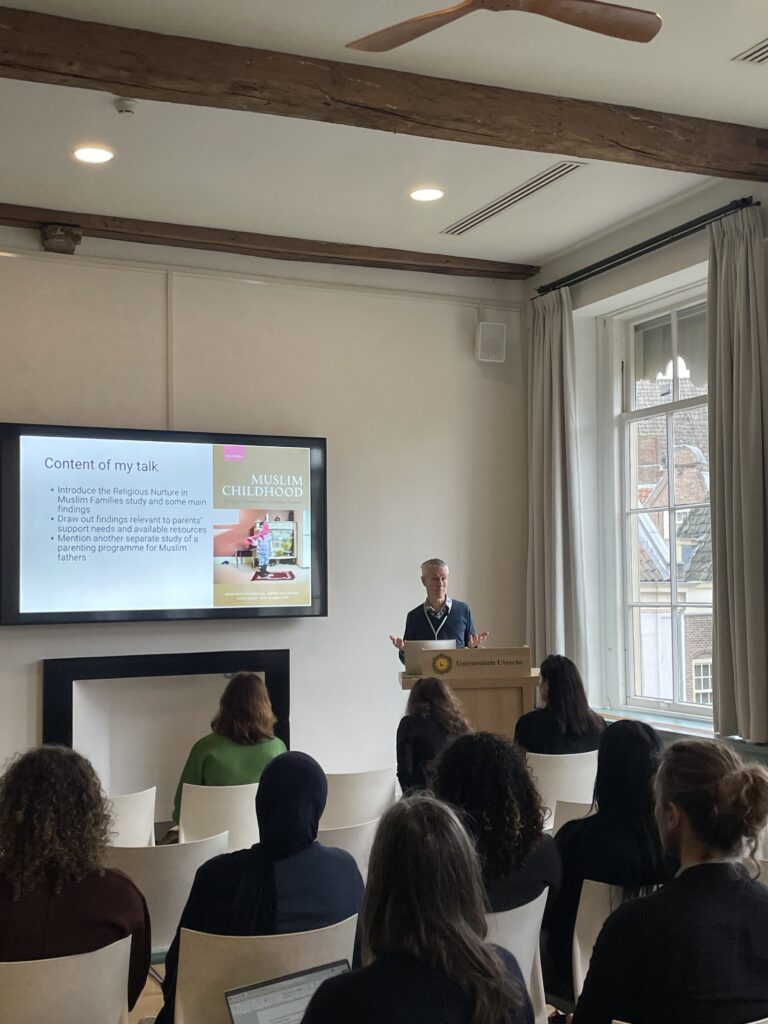
Socio-economic factors shaping Muslim parenting in the UK
Prof.dr. Jonathan Scourfield from University of Cardiff in the UK shed light on how broader socioeconomic disparities, migration histories, employment patterns, and experiences of Islamophobia shaped the challenges experienced by Muslim parents raising their children in Cardiff, the UK. He illustrated how employment patterns among Muslim fathers also played a role in shaping their involvement in child-rearing. For example, restaurant workers struggled with long and unpredictable working hours, which limited their ability to spend time with their children, while taxi drivers appreciated the flexibility of their jobs. These employment-related challenges were compounded for families with uncertain migration status, where legal and bureaucratic struggles added stress to their daily lives, and made navigating the education system more difficult. Prof. dr. Scourfield explained that in the British context the complexity of offering pedagogic support to Muslim families was addressed by three different categories of parenting support programs: Faith-based programs, culturally adapted programs, and Western psychological models with Islamic adjustments.
Muslim family life in the UK
Dr. Joanne Britton, Senior Lecturer in Applied Sociology from University of Sheffield in the UK discussed, as in her newly published book Understanding Muslim Family Life: Changing Relationships, Personal Life and Inequality, how Muslim families often adhere to collectivist principles, particularly through extended family living arrangements, which challenge the dominant model of nuclear family life. These collectivist principles, while often stereotyped, is an important feature of Muslim family structures and requires more attention in discussions about parenting support. Dr. Britton noted that these networks of extended family can play a crucial role in providing care and support, yet they are often excluded from mainstream discussions about family life.
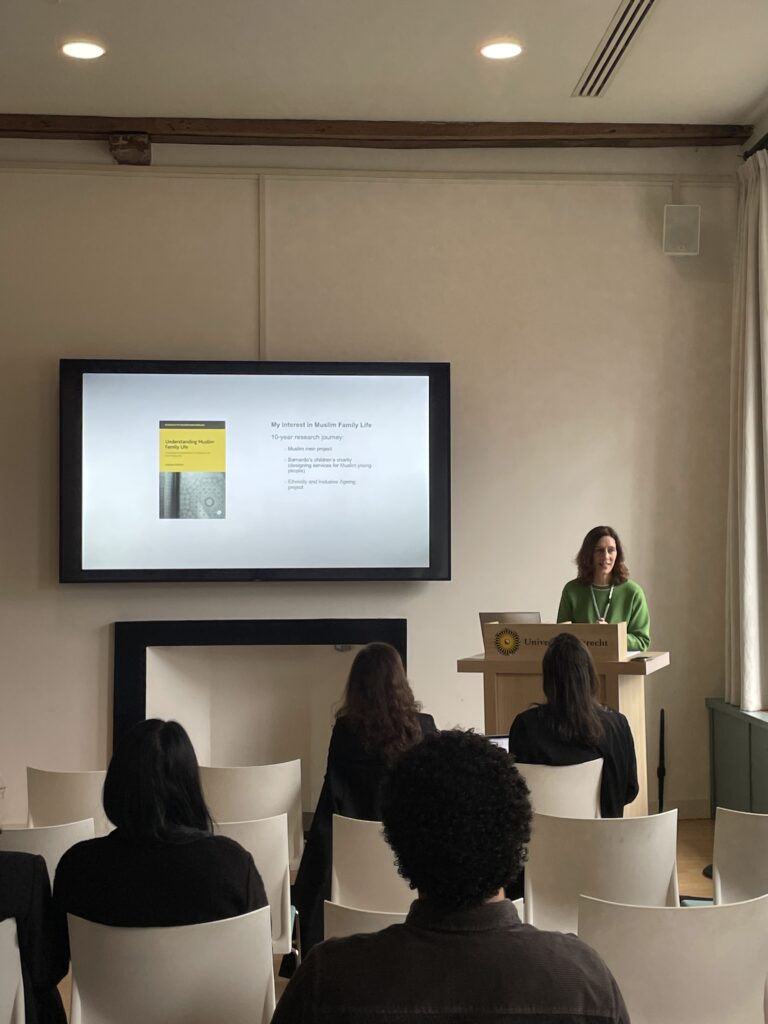
Autonomy in migrant families in the Netherlands: an intergenerational perspective
Ouissam Abattouy shared findings from a qualitative study on autonomy within families with a migration background in the Netherlands, specifically focusing on adolescents/young adults (ages 16 – 25) and their mother with a Moroccan background. Abattouy highlighted the complex nature of autonomy by combining two widely used definitions of autonomy: independence and volition. Independence refers to who makes decisions—ranging from the adolescent, the parent, or both—volition refers to why the decides are made that way, ranging from internally motivated to driven by external pressure. While autonomy when conceptualized as independence may be an individualistic ideal in Western societies, autonomy conceptualized as volition may be more culturally universal.
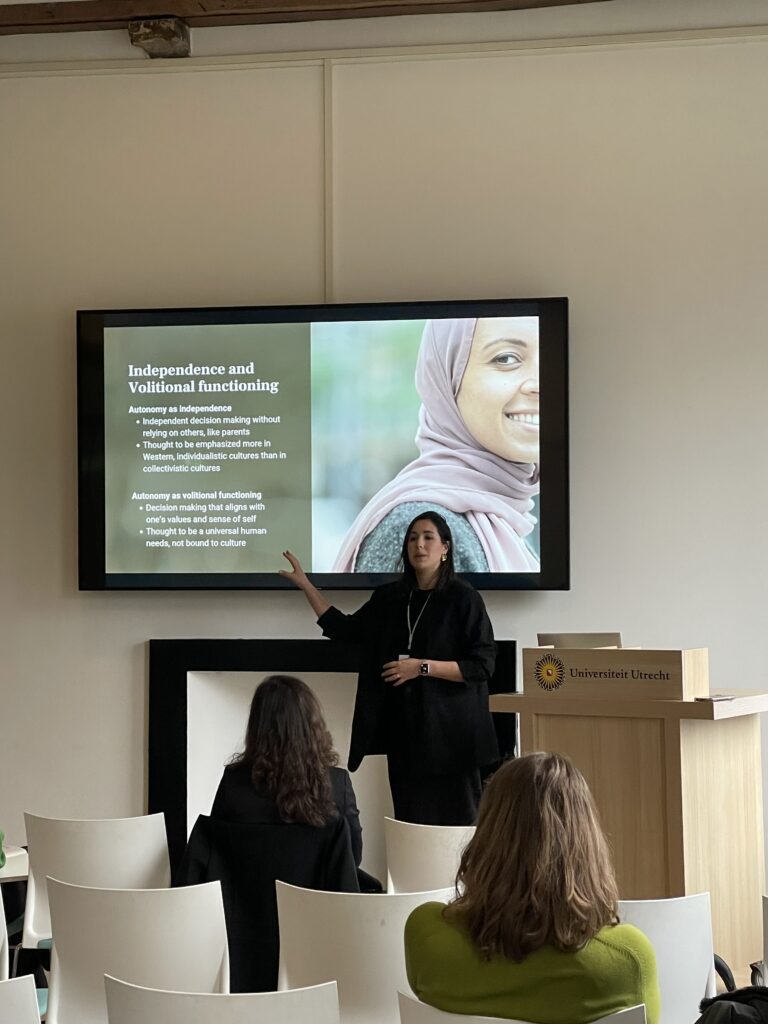
Abattouy’s study challenged the common assumption that intergenerational conflict over who decides (autonomy conceptualized as independence) is widespread in migrant families. Instead, the findings showed that the issue was less about conflicts and more about how parents support their children’s volitional functioning—that is, making choices that feel self-endorsed. Even when parents and adolescents differ in opinions about who should decide, decisions can still feel authentic and internally motivated. As such, there is space for both independent decisions and those made with parental guidance. Importantly, both types of decisions can still feel volitional and aligned with one’s personal values, including those rooted in Islamic principles.
Mosque-based parenting support in the Turkish-Dutch Islamic communities
Lastly, Dr. Semiha Bekir presented preliminary findings from her case-study on mosque-based parenting support in the Turkish-Dutch Islamic communities. One key finding that emerged was a significant distrust of formal providers, particularly in relation to the intentions behind the parenting interventions. Many parents felt that the mosque-based parenting support they received in the community setting was more aligned with their values, as Islam was seen an integral part of family life. The findings presented by Dr. Bekir indicated that mosque-based parenting support was perceived as more accessible by some Muslim families not only because of offering counselling and therapy in a familiar cultural context, but also because it removed linguistic and financial barriers for newcomers.
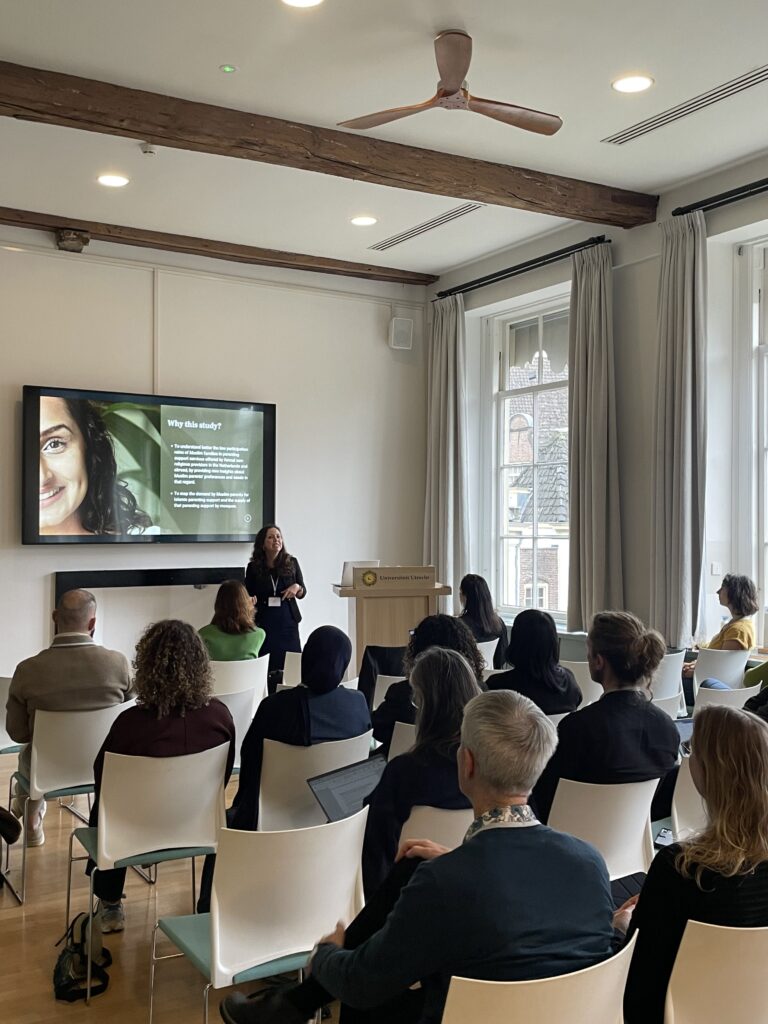
Interactive research-idea mapping session
In the second part of the symposium, these presentations were followed by an interactive research-idea mapping session in which mixed groups of practitioners and academic brainstormed together on the optimal ways for mapping the support needs of the families, and the ways to connect them to the stakeholders who are positioned for creating suitable solutions. The participants underscored the importance of increasing interdisciplinary collaborations and creating more visibility for research and initiatives working in this field.
During the closing session, participants exchanged contact details with each other with the intention to explore the possibilities for setting up partnerships and collaborations. The insights gathered from the keynotes and the research idea mapping sessions have been compiled by the organizers in a comprehensive summary, which will be used in the planning and development of the future activities of the research network ISPED. For more information, you can contact Dr. Semiha Bekir at s.y.bekir@uu.nl

